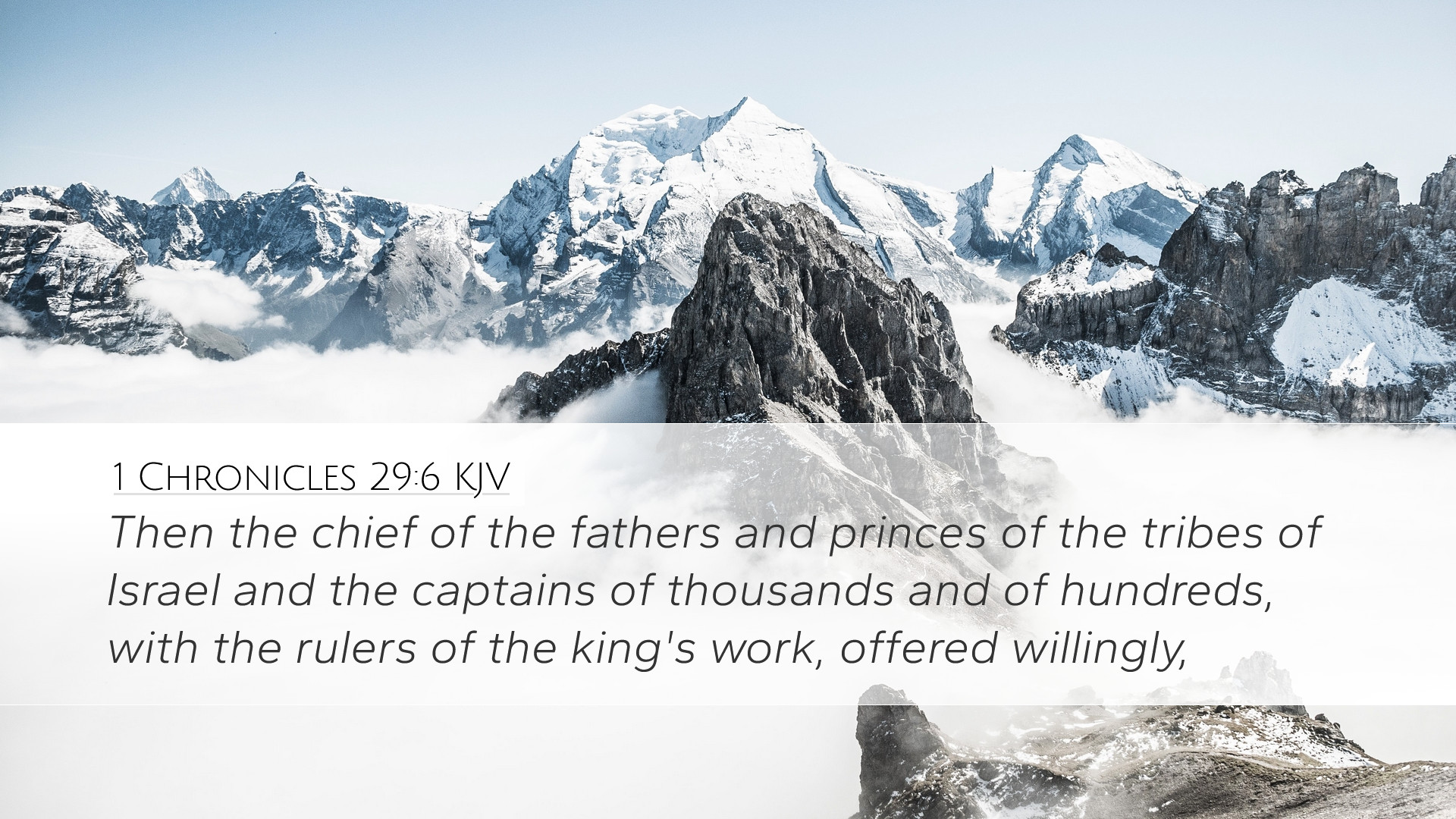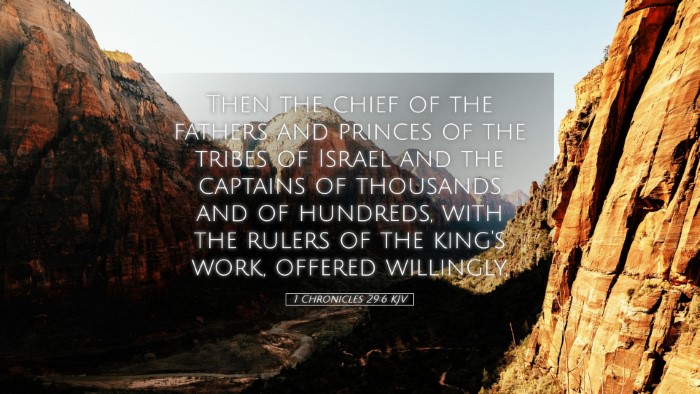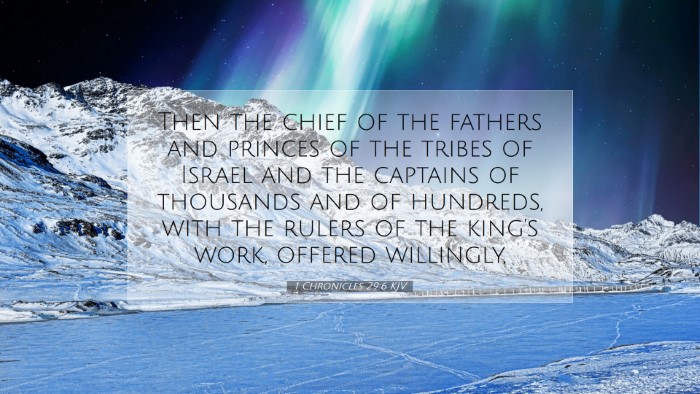1 Chronicles 29:6 - Commentary Summarized
Bible Verse: "Then the leaders of the fathers' houses, the leaders of the tribes of Israel, the captains of thousands and of hundreds, with the rulers of the king’s work, offered willingly."
This verse captures a significant moment in Israel's history during the reign of King David, where a collective spirit of generosity and leadership is demonstrated in the preparation for the construction of the temple.
Contextual Background
To fully appreciate 1 Chronicles 29:6, one must consider the surrounding narrative. King David, nearing the end of his reign, gathers the people to present the vision of building a temple—a task designated for his son, Solomon. David's desire to build a dwelling place for God’s glory signifies the culmination of a covenant relationship and the establishment of a permanent place for the Ark of the Covenant.
Insights from Commentaries
1. Matthew Henry’s Commentary
Matthew Henry emphasizes the voluntary nature of the offerings made by the leaders. He notes that the phrase "offered willingly" signifies the importance of heartfelt contributions over mandated actions. This expression of willingness reflects a deep personal commitment to God’s work, which resonates with the New Testament principle of giving.
2. Albert Barnes’ Notes on the Bible
Albert Barnes focuses on the role of the leaders, highlighting that the "leaders of the fathers' houses" not only contributed materially but also inspired unity among the people. Their leadership was crucial in rallying the Israelites to participate in this grand spiritual project. Barnes suggests that this unity of spirit and purpose among the leaders showcases a model for contemporary church leadership.
3. Adam Clarke's Commentary
Adam Clarke provides an analytical view of the qualifications of those who led the offerings. He points out that leaders, being accountable to their followers, engaged in this act of giving as a testament to their faith and devotion. Clarke also connects the act of giving with the acknowledgment of God's sovereignty and blessings in their lives, reminding readers that genuine gifts to God stem from recognition of divine providence.
Theological Significance
This verse is crucial for understanding the culture of giving within the community of faith. The collective offering signifies more than just material gifts; it embodies a corporate acknowledgment of God’s kingship and the necessity of partnership between God and His people in ministry.
Generosity as a Response to God’s Blessing
- Spiritual Preparedness: The willingness of the leaders illustrates how spiritual readiness impacts the willingness to contribute. It challenges modern believers to consider their own readiness in giving to God’s work.
- Leadership and Influence: The significance of leadership in mobilizing resources for God’s kingdom is displayed here. Faithful leaders have the power to inspire and engage the entire community in acts of worship and service.
- Collective Worship: The corporate act of offering underscores that worship and service to God in the community context are vital for church health and vitality.
Application for Today’s Church
The verse serves as a timeless reminder for contemporary Christian communities about the nature of stewardship and communal involvement. It communicates that congregations should cultivate an atmosphere where members feel motivated to give freely and willingly, mirroring the hearts of the Israelites in King David's time.
Encouragement to Pastors and Leaders
Pastors are encouraged to teach the principles of sacrificial giving, reminding congregants that their resources are to be viewed as means of worship. The example set by the leaders in this passage can serve as a model for developing a culture of generosity and commitment within the church.
For Students and Theologians
For theological students and scholars, this verse raises questions on the theological implications of leadership and giving in the Old Testament context, also inviting them to explore the intersection of leadership roles and community dynamics in church practices today.
Conclusion
1 Chronicles 29:6 is much more than a historical record; it is a profound call to generosity, community engagement, and faithful leadership. As we reflect on this verse, may it inspire similar acts of willingness and stewardship in our own churches and communities, reminding us that every offering is a reflection of God’s generous character.


